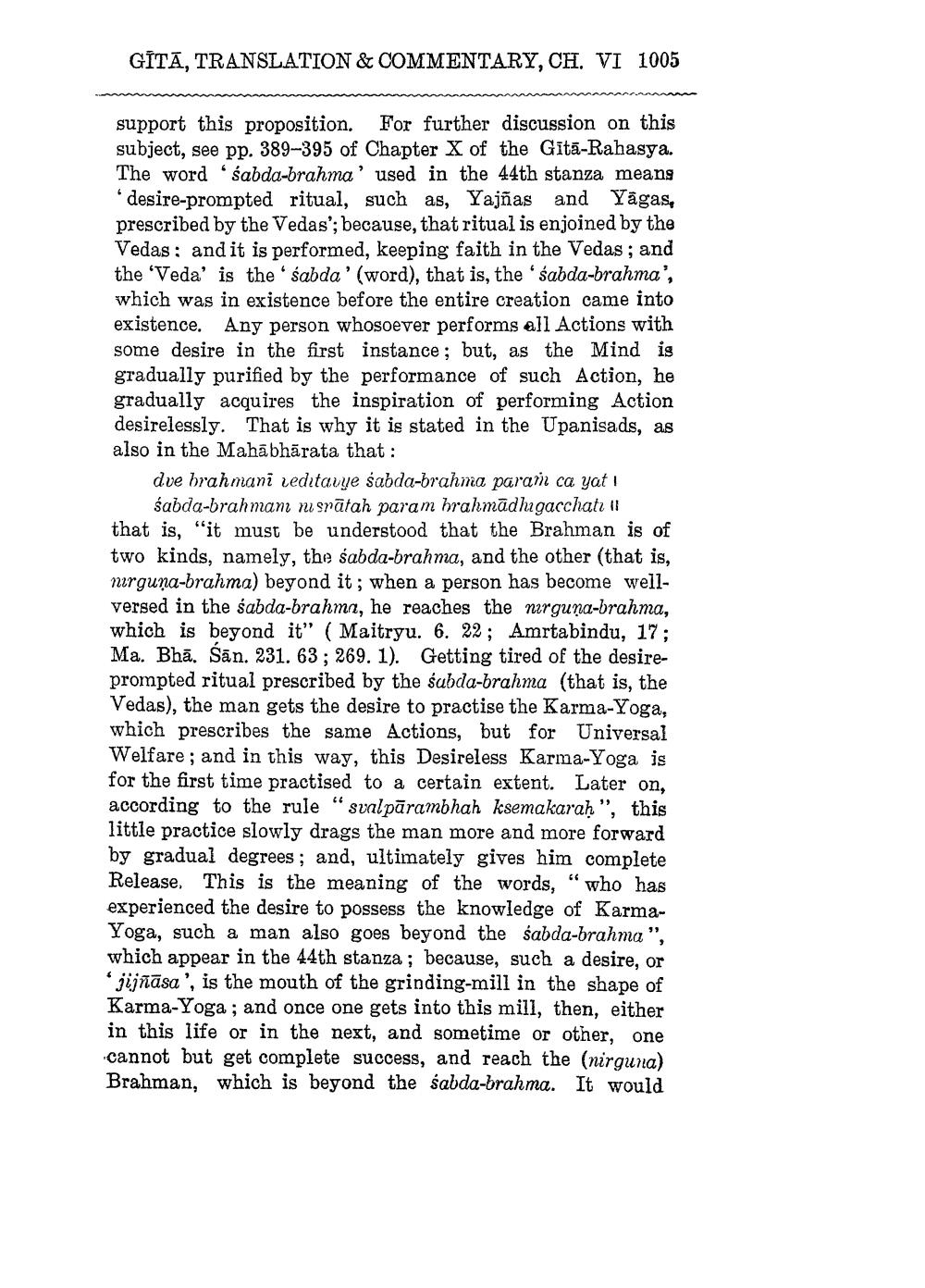________________
GÍTĀ, TRANSLATION & COMMENTARY, CH. VI 1005
support this proposition. For further discussion on this subject, see pp. 389-395 of Chapter X of the Gītā-Rahasya. The word 'sabda-brahma' used in the 44th stanza means * desire-prompted ritual, such as, Yajñas and Yāgas, prescribed by the Vedas'; because, that ritual is enjoined by the Vedas: and it is performed, keeping faith in the Vedas; and the 'Veda' is the sabda' (word), that is, the 'sabda-brahma', which was in existence before the entire creation came into existence. Any person whosoever performs all Actions with some desire in the first instance; but, as the Mind is gradually purified by the performance of such Action, he gradually acquires the inspiration of performing Action desirelessly. That is why it is stated in the Upanisads, as also in the Mahābhārata that:
dve brahmani reditavye sabda-brahma parar ca yati
sabda-brahmam ni srātah param hrahmādhigacchati il that is, "it must be understood that the Brahman is of two kinds, namely, the sabda-brahma, and the other (that is, nurguna-brahma) beyond it; when a person has become wellversed in the sabda-brahma, he reaches the nirguņa-brahma, which is beyond it" ( Maitryu. 6. 22; Amrtabindu, 17; Ma. Bhā. Sān. 231. 63; 269. 1). Getting tired of the desireprompted ritual prescribed by the subda-brahma (that is, the Vedas), the man gets the desire to practise the Karma-Yoga, which prescribes the same Actions, but for Universal Welfare; and in this way, this Desireless Karma-Yoga is for the first time practised to a certain extent. Later on, according to the rule "svalpārambhah ksemakarah", this little practice slowly drags the man more and more forward by gradual degrees; and, ultimately gives him complete Release. This is the meaning of the words, “who has experienced the desire to possess the knowledge of KarmaYoga, such a man also goes beyond the sabda-brahma", which appear in the 44th stanza; because, such a desire, or
jijñāsa', is the mouth of the grinding-mill in the shape of Karma-Yoga ; and once one gets into this mill, then, either in this life or in the next, and sometime or other, one cannot but get complete success, and reach the (nirguna) Brahman, which is beyond the sabda-brahma. It would




